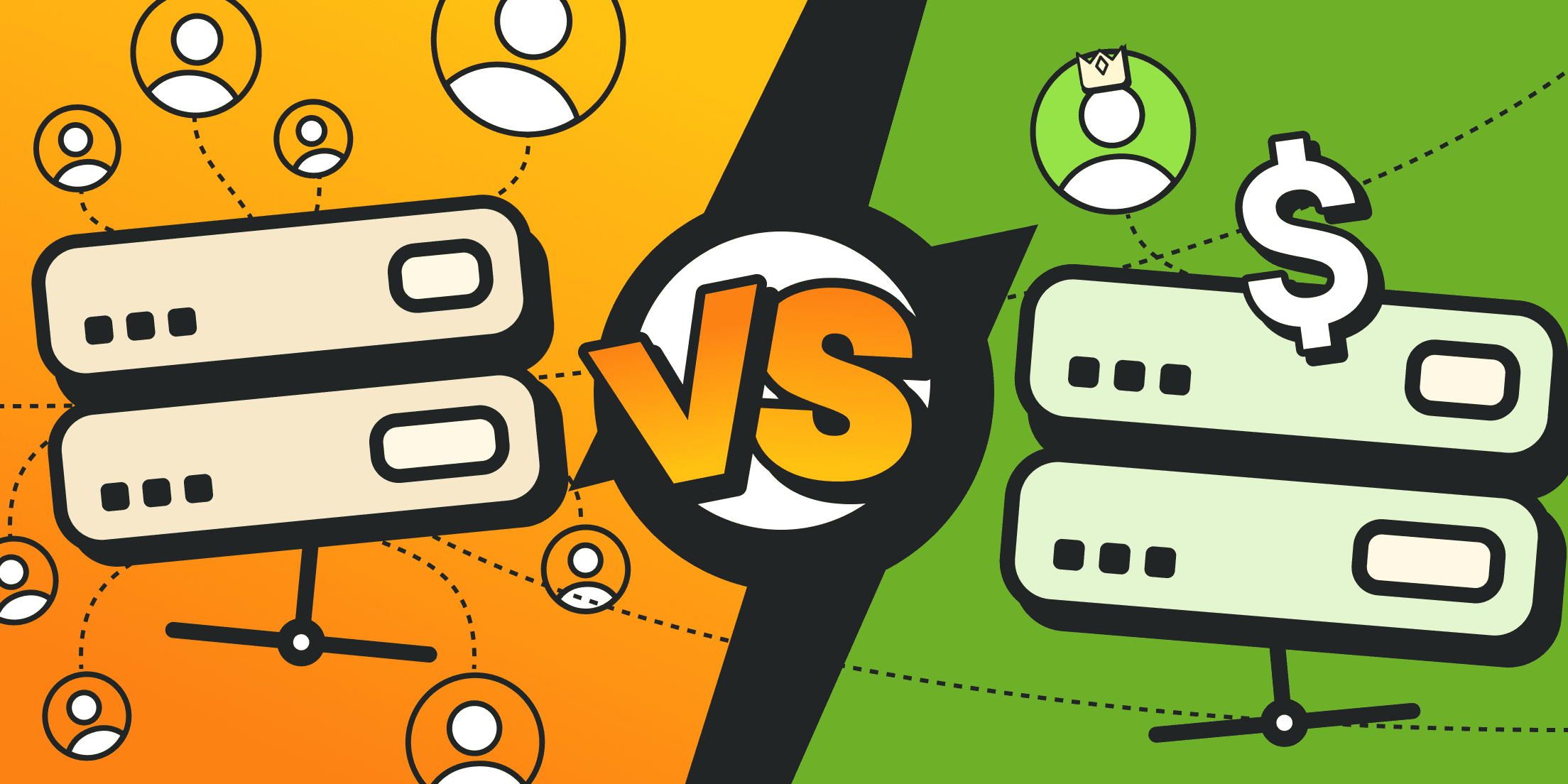Investing in Security: The Value of Paid Proxies
When we think about investments, we tend to focus on things like bonds or stocks. But investing is also about risk mitigation. The money we put into cybersecurity returns to us in the form of threats we avoid and privacy we ensure.
Poor choice of cybersecurity tools can not only be inefficient for protection but even increase the risks. This article is all about why you should choose paid proxy options and how such an investment will return dividends to you.
What is a proxy server?

Proxy servers are devices that act as a gateway for your connection to the internet. It’s an extra layer of protection that hides your IP address, allows bypassing geo-restrictions, and can filter incoming traffic. It’s achieved by a seemingly simple method of forwarding your requests.
Every time you connect to the internet, your device sends its IP address to websites or services. It allows them to know your internet service provider (ISP) and approximate location. At the same time, cookies can provide information about your device. Based on this data, the servers can ensure optimal performance.
However, it also exposes you to various security threats and exposes your identity. Unless you are connecting to a proxy first. Such a server connects online on your behalf, collects the data, and returns it to you. For example, if you send a website’s URL to the proxy first, it loads the website and forwards it to you.
With a good proxy, everything happens in a split second, and you barely feel the difference when surfing the web without one. Since proxy servers can be placed anywhere in the world, it allows the user to access content that would otherwise be restricted to certain locations.
But surfing the web and bypassing geo-restrictions is just a minor use case of proxy servers that can also be achieved by other means, such as VPNs or TOR browsers. The real value of paid proxies comes with their ability to be integrated into various software solutions to automate tasks and collect data.
Free proxies
Anyone who searches for proxies online has encountered promises of free proxy servers. But when you think about it better, this is a security and privacy hazard from the start. You are putting a lot of trust in the proxy provider, as all your requests and all the data that you download will go through the proxy.
A free proxy provider can easily intercept all that data, not only peeking into your online activity but also potentially stealing passwords or other sensitive information. Of course, some free proxy lists might come from credible sources, but then we have the issue of performance.
Maintaining a proxy server running 24/7 takes a lot of resources both on the hardware and software side. It’s just not realistic to think that someone would go through this expensive and complicated process just to give out the IP address for free.
That’s why free proxies are more likely than not to be a security hazard – if you are not paying with your pocket, you will be paying with your security and privacy. Luckily, there is one way to get hold of free proxies.
Some proxy providers give free trials or lists of free proxies for promotion purposes. This is the safest way to use proxies without paying anything. Paid providers will not risk their reputation by intruding on your privacy or creating security hazards.
However, you should not expect the best performance with free proxies. Proxies in free lists are banned on many popular websites or run on inefficient hardware. Most people, including myself, only use them temporarily to check whether proxies will be compatible with needed software. After some time, you will still need to go with paid proxies.
Paid proxies

The first major difference you will see when using paid proxies is the ability to choose the type. With free options, you simply take what you can get. Seldom, there are any explanations about the type of proxies.
Most you can expect from free proxies is approximate or inaccurate location data, while with paid proxies, you have a lot of choices. Good providers have thousands of locations, different IP address types, and protocols.
Almost all free proxies are datacenter proxies, created in bulk and run on commercial internet connections. It’s cheapest to maintain such proxies, but they are least reliable when not used in large numbers on rotation.
Paying for datacenter proxies allows you to compile your IP pool and use it privately without interruption. Even better is that you can purchase residential proxies. These are premium proxies ensuring every IP address is verified by an ISP and run on a separate physical device.
Residential proxies are expensive to maintain as the internet and device uptime costs add up. Frequently, providers use partners that allow their personal connections to be used as proxies. It ensures that residential proxies are no different than ordinary household connections, but it’s nearly impossible to acquire a well-performing residential proxy for free.
In some cases, paid proxies are optimized to bring maximum efficiency for certain tasks. For example, people who need proxies for web scraping can choose proxies that are tested to work with most data collection software and can download large quantities of information. Often, these are private pools of datacenter proxies.
Paid proxies can be optimized for even more specific tasks. Residential proxies are often tested to work best when purchasing specific items in bulk online. That’s why you have such types as e-commerce or sneaker proxies. Usually, they are residential proxies, as you need very legitimate IPs and accurate location targeting.
Conclusion
There are many more types and benefits of paid proxies. But it should be clear already – paid proxies are the way to go if you’re serious bout online security. While there are some viable free proxy options in the short term, you will need to invest money to get a trusted proxy server.






